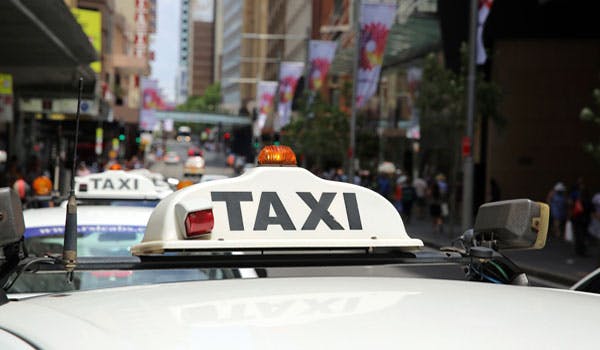The NSW government has moved to inject greater competition into the heavily monopolised taxi industry and legitimise the emergence of new smartphone apps, which put punters in direct contact with cab drivers.
The government today indicated it would take steps to regulate new apps like goCatch, ingogo, and Uber – all of which market themselves as a friendlier, more convenient alternative to traditional cab booking services.
Unveiled today by NSW Premier Barry O’Farrell and Transport Minister Gladys Berejiklian, the package also includes a 50 per cent reduction in the usual 10 per cent surcharge for fares paid for via card. Under the changes, the surcharge will now be capped at 5 per cent – saving a customer about $2.50 on a $50 cab ride.
However, the changes represent a blow to industry giant CabCharge, which has EFTPOS terminals in use in about 97 per cent of the nation’s cabs, and runs the largest booking and dispatch service in the nation.
CabCharge has claimed that the $28 million it receives each year in taxi service fees will now be halved and its share-price took a heavy beating after the announcement of the industry overhaul, falling 7.6 per cent to $3.78 by mid afternoon – a two month low.
“If the service fee in NSW does in fact become limited to five per cent, and if that limitation were to apply across all categories of transactions processed by CabCharge, CabCharge’s taxi service fee income could be reduced by approximately $14 million with greatly reduced potential to make payments to networks who will have to find other means to recover this lost income,” CabCharge company secretary, Andrew Skelton said, in a formal notification to the Australian Securities Exchange.
Mr Skelton also said that the board would consider the “legal aspects” of the proposed changes to the current NSW legislation before considering what actions it would take.
However, Premier O’Farrell was unrepentant about the decision to reduce costs for consumers, saying punters had been “taken for a ride”.
“As people increasingly choose credit and debit cards as a safer alternative to carrying around large amounts of cash, especially late at night, it’s vital taxi customers get a fair deal,” he said.
The government’s move to regulate new mobile booking apps has been interpreted by industry players as a formal validation of a new source of competition in an industry dominated by vested interests.
Andrew Campbell, the co-founder of mobile booking and payment platform app, goCatch, welcomed the government announcement and said he expected it to have little impact on the operation of the app.
“We aren’t anticipating we’ll change the way the app works at all,” he told Dynamic Business.
“The existing regulations are there to make the taxi industry more reliable and provide better customer service. We already provide a higher level of customer service.
“goCatch exists because of that poor service in the taxi industry and we are already improving customer service, security and reliably.”
Ms Berejiklian said the government would strive to safeguard customers by ensuring the new apps met the “full range of customer service, privacy and safety standards” that currently apply to existing booking services provided by taxi networks.
“This is a small change that can make a big difference, opening up competition and giving customers the information they need when they book a taxi and providing more confidence when a taxi will arrive,” she said.
Another booking and payment platform app, ingogo, suggested the government consider developing a specific “app platform license” to ensure those apps which were non-compliant were forced to lift their performance.
Ingogo founder and managing director, Hamish Petrie, is pushing for changes to allow apps the ability to validate driver licenses in real time via access to Transport NSW’s database.
He has also advocated a new framework to reduce existing barriers to entry into the market and for incentives to be introduced encouraging drivers to improve service to customers.
The government says its reforms to the surcharge and mobile booking apps will come into effect later this year via legislation.

